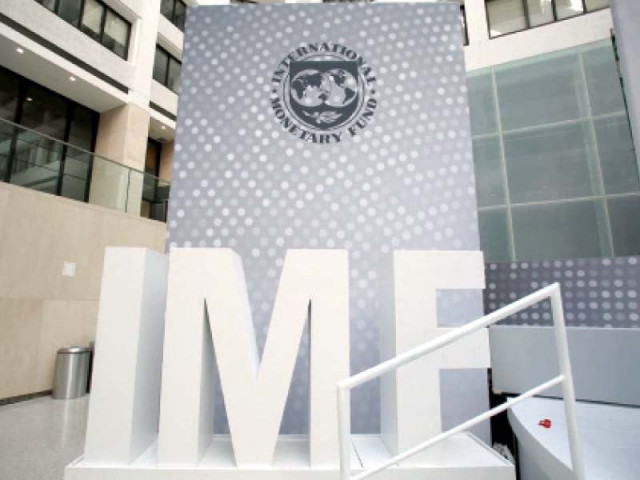Stop demonising IMF’s bailout terms
Our credibility is seriously compromised due to repeated violation of agreements

Nowadays, our inability to handle economic stability – let alone growth – is being globally decried and mocked. Without dwelling into the causes of the umpteenth International Monetary Fund (IMF) bailout, we need to look forward to the conditions of the “bailout”. Our problems are homegrown and require homegrown efforts across the spectrum of policy makers, private sector and citizens.
Let’s establish that our credibility is seriously compromised due to repeated violation of agreements and casual derailment of stability immediately after successive IMF programmes. Naturally, when we fail to undertake reforms, we are bound to relapse and head back to rehab.
Firstly, we need to have a market determined exchange rate. Naturally, the impact of leaving the currency in control of speculators would have devastating implications as our long-term power contracts are also dollar-linked. Hence, any depreciation leads to an inflationary cycle, creating further depreciatory pressures. While there are merits of demonising depreciation as the “mother of all evils”, in cases where parallel grey markets exist, it is vital to address it immediately. You cannot fight the market. In a market determined exchange rate, focus should be on increasing the supply of dollars. Back to basics.
Secondly, there is a mess in the energy sector. Politicians wavering support to loss-making distribution companies for electoral gains, and unwillingness to pass on entire fuel costs, have pushed us to default. The improvement in theft, recovery, Transmission and Distribution (T&D) and Unaccounted For Gas (UFG) losses etc is painstakingly meagre and due to the rupee’s depreciation and energy price rise, many a times the prices are to be increased, putting downward pressure on efficiency efforts. These entities need to be privatised on a Public Private Partnership (PPP) model with the benefit being shared with the masses, investors and policy makers. Besides, additional circular debt stock is a defacto fiscal deficit. The poorest should pay full cost – just like petrol and diesel – and get BISP top ups. Drop the weight of the Pakistan National Shipping Corporation, Pakistan Railways and Pakistan International Airlines.
Thirdly, increasing taxation is overburdening. Our tax to GDP ratio is woefully low, at less than 10% to cater to development needs let alone defence and social security nets. The ratio is awfully flawed and encourages the formation of a parallel economy under the garb of protecting the vested interests of connected ones. Hence, unfortunately, reliance on indirect taxes is one the rise. Large scale landowners have sky rocketing profitability, but taking shield behind small farmers, are less taxed. How can someone with 10 acres of land pay the same tax as someone with 500 acres of land. Similarly, those who are ultra-rich, and have bought property, are paying a fraction of taxes and keep their money dollarised and goldified. Propping of land prices should be discouraged, starting with the owners of thousands of housing societies developed on agricultural land.
Fourthly, if the government starts to live within its means by enforcing strict fiscal discipline, focusing primarily only and only on widening its tax base, grow revenues much higher than inflation, documenting the economy and using the primary surplus to repay debts, our fiscal vulnerability would decrease materially. In a near 30ish% inflationary scenario, the debatable textbook monetary policy demands interest rate hikes to combat depreciation and discourage government borrowing. If only our rupee was stabilised – with export and remittances inflows – the cost pushed inflation would have been lower. At this point, Pakistan is operating a near current account surplus and tightening wouldn’t help. Nevertheless, temporary tightening might be necessary for a few quarters until the FX reserves prop up.
Lastly, ending untargeted subsidies. A major dent to the economic balance sheet stems from energy sector subsidies. Radical full cost recovery and private sector model-esque reforms are necessary to stop the bleeding. The masses are already paying Liquified Petroleum Gas rates for gas consumption. If we had more Liquified Natural Gas in the system, our economic growth would have been higher. With the commencement of cheaper nuclear and Thar power plants – and additional hydel flows in the medium-term – our energy mix would get better. Though, tax credits are correct tools to nudge the economic direction – read the US’s inflation reduction act to get strategic sense – but subsidies for the rich should be put to an end. Start with taxing the rich and curtailing their perks.
The prescription list from the IMF is in our interest. Our bilateral friendly nations do not want to dole out dollars either – they want us to reform and have their money repaid. China has been spending money through the Belt and Road Initiative in countries with clear signs of progress. China’s CATL (leading tech giant) is investing $7billion in Hungary to develop a battery plant with Mercedes. It should have been us. Our indiscipline has cost us our next leg of growth. If only we were able to grow exports with CPEC investments. What a disappointment for 220 million odd people. Nevertheless, instead of demonising the IMF, let’s rebuild. If we can manage only three to five years of debt deleveraging and double digit export growth, we will be back in the game.
The writer is an independent economic analyst
Published in The Express Tribune, February 20th, 2023.
Like Business on Facebook, follow @TribuneBiz on Twitter to stay informed and join in the conversation.



















COMMENTS
Comments are moderated and generally will be posted if they are on-topic and not abusive.
For more information, please see our Comments FAQ